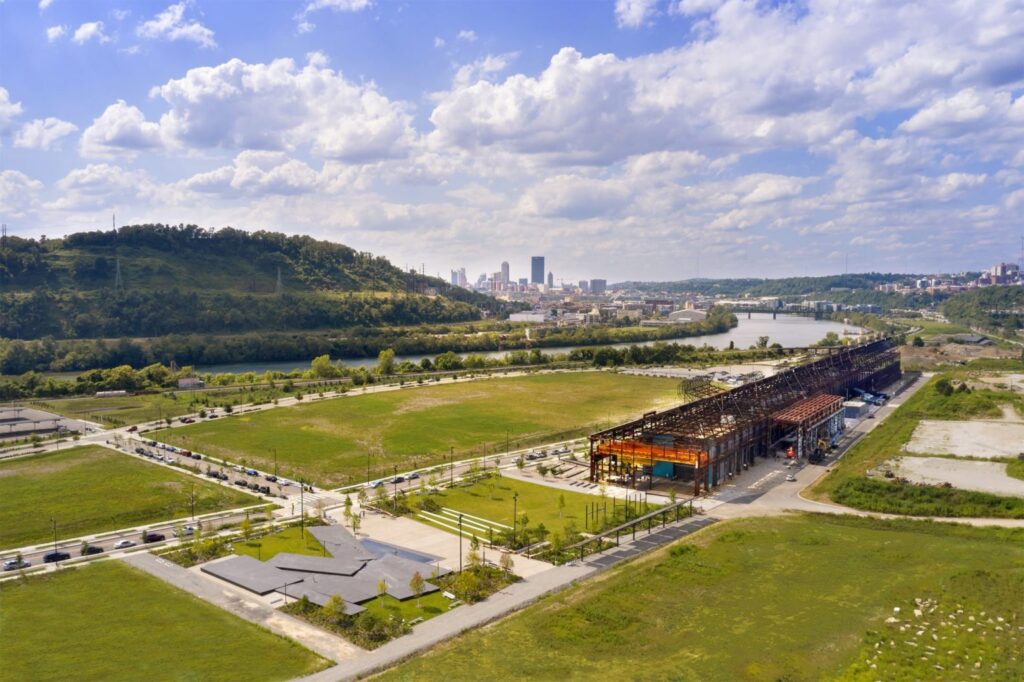Mill 19, a former steel mill located on the 178-acre Hazelwood Green site, once owned by J&L Steel Hazelwood Works and LTV Steel, was one of the last large riverfront brownfields within city limits. The building was left to rust when the steel industry collapsed, but its bones – an underlying steel superstructure – remain strong. Today, Mill 19 has been revitalized and, while its design pays tribute to our industrial past, it has been transformed into a hallmark of the region’s economic growth and its path forward.
Mill 19’s redesign features a building within a building concept to showcase the community’s past, present and promising future. The mill’s metal walls and roof have been stripped away to reveal its underlaying steel superstructure and three new buildings have been constructed within it. Its occupants today include the Advanced Robotics for Manufacturing Institute and Manufacturing Futures Initiative (affiliates of Carnegie Mellon University), autonomous vehicle company Motional, Catalyst Connection and YKK AP.
The property is designed as a home for the robotics, technology, innovation and advanced manufacturing companies that are rapidly becoming new economic pillars of the region. The success of this project has served as a beacon for the region and a symbol of Pittsburgh’s revitalization. It regularly receives prominent visitors, including President Biden, members of the President’s Cabinet, and government officials and groups from around the world.
In contrast to the pollution produced by the original steel plant, Mill 19 has been designed to be eco-friendly and environmentally sustainable. A high-performance envelope provides maximum thermal efficiency and up to 96% daylight autonomy. On its rooftop is the largest sloped rooftop solar array in the country, which provides energy to the buildings. Storm water is conveyed through a rainwater garden to centrally located infiltration basins. Captured rooftop rainwater will be reused in the cooling tower and for flushing in the restrooms.
Outdoor amenities include a “ruin” garden, a contemplative space that combines the remnants of old machinery foundations with thoughtful landscaping. Seating includes steel beams and concrete salvaged from the original building. Other amenities will include a quarter mile long loggia, a stage for outdoor performances, and bikeable and walkable paths reconnecting Hazelwood to the Monongahela River and other city trails.
Now, plans are moving forward for two new buildings at Hazelwood Green: University of Pittsburgh’s BioForge, which will focus on research into new cell and gene therapies, and Carnegie Mellon’s Robotics Innovation Center. Clearly, Hazelwood is quickly becoming a global focal point for companies in the robotics and life sciences fields.

